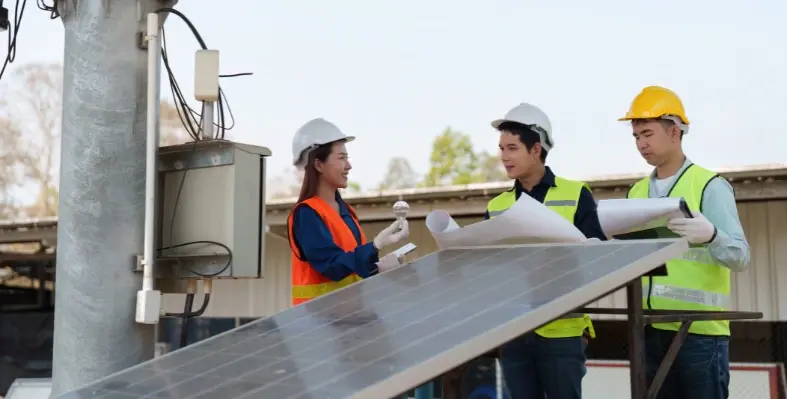A new report by the International Renewable Energy Agency (IRENA) reveals that women make up 32% of full-time employees in the renewables sector, a figure that has remained unchanged since the agency’s first gender analysis in 2019.
Although the proportion is higher than in other energy industries, the findings show that meaningful progress towards gender equality in the sector has stalled.
The second edition of Renewable Energy: A Gender Perspective offers IRENA’s most comprehensive assessment yet of women’s participation in the renewable energy workforce and the barriers they continue to face.
The report warns that without stronger action to improve representation, the global energy transition risks being neither fair nor sustainable, potentially leading to labour shortages and limited diversity in leadership and decision-making.
Women remain underrepresented in senior leadership, holding only 19% of such positions. They make up 45% of administrative roles but just 28% of jobs in science, technology, engineering and mathematics (STEM). Representation is lowest at 22% in technical trades such as installation, machinery operation, and electrical work, which require vocational or technical training.
Gender disparity
“Advancing gender equality in the renewable energy sector depends on robust data, targeted policy interventions and active collaboration of all stakeholders. Our analysis is the only of its kind to fill this knowledge gap. Unfortunately, despite performing better than in fossil fuel industries, little progress has been made. The sector still has a lot of work to do. To realise the energy transition’s full potential, women must be recognised as equal partners and leaders in shaping the renewables-based future,” said IRENA Director-General Francesco La Camera.
Systemic barriers continue to hinder women’s advancement at every career stage, from gender bias and cultural stereotypes to the challenge of balancing professional and caregiving responsibilities. Discriminatory practices and glass ceilings further limit their access to leadership roles.
In non-governmental organisations focused on off-grid and community-based projects, women represent around 35% of employees, suggesting significant potential for expanding their leadership and influence in achieving the United Nations Sustainable Development Goal of universal energy access.
The study also identifies disparities between organisational types: women make up only 25% of the workforce in private enterprises compared with 48% in NGOs and 37% in government or non-commercial institutions.
The report calls for coordinated action across all levels. Governments should enforce non-discrimination laws, ensure equal pay, and integrate gender equality into climate and energy policies. Employers are urged to adopt flexible work arrangements, transparent recruitment, mentorship programmes, and safe workplaces. Educational institutions, trade unions, and civil society must also help dismantle stereotypes, expand opportunities, and promote accountability.








